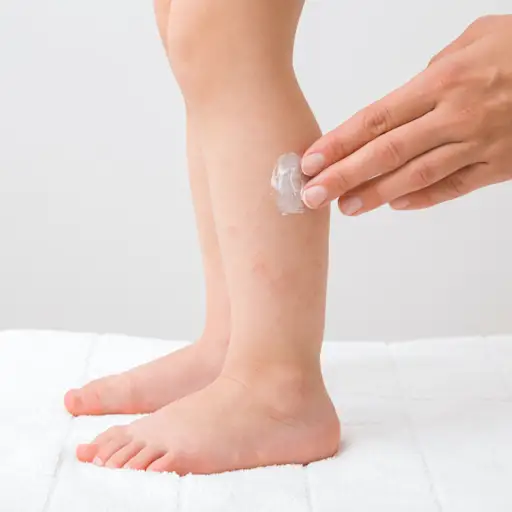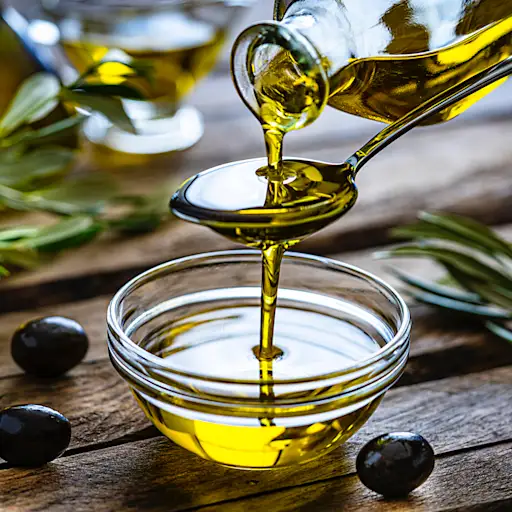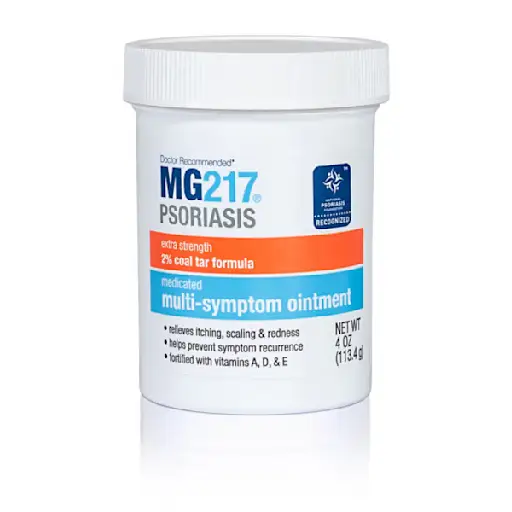From healthcentral.com
YOUR CHILD IS tucked into bed, with teeth brushed and a goodnight kiss delivered, but just when they should be drifting off, instead you hear: scratch, scratch, scratch. While psoriasis itself may not be a direct cause of sleep disturbance, its symptoms can keep kids from getting the rest they need. Being able to soothe skin as part of a night-time routine can help. Use these dermatologist-recommended strategies to send your little one off to sleep in peace.
Moisturise All Day
Although it’s useful to moisturise before bed, only doing so once a day isn’t enough. “The more often you moisturise, the faster your skin will heal and the less irritated it will be,” says Michele Green, M.D., a dermatologist at Mount Sinai and Lenox Hill Hospitals in New York City. “That’s because it maintains the moisture barrier of your skin. When that’s dry, even a minor scratch will cause irritation.” She also suggests placing a cloth (rather than gauze) over the plaque after moisturising it when possible, which will help the lotion stay on the skin longer.
The type of moisturiser you use is also important. Read ingredient labels for soothing substances: Research points to milk proteins and lanolin. Specifically, milk proteins like casein have anti-inflammatory effects, according to a Molecules study, and lanolin has emollient properties, according to a British Journal of Nursing report. Together, they pack a skin-soothing punch. If you would rather use a plant-based option instead, avocado oil, shea butter, jojoba, argan oil, rose hip, and chamomile have proved to be beneficial, according to research in the International Journal of Molecular Sciences.
Use Anti-Itch Creams
Since scratching can cause the most disruption, Dr. Green suggests using a product formulated specially to address that issue. Luckily, there are many over-the-counter options available. She says some top choices include Aveeno Anti-Itch lotion, Gold Bond Anti-Itch cream or lotion, Eucerin Itch Relief Intensive Calming lotion, Benadryl Itch Stopping Cream, and CeraVe Itch Relief moisturizing lotion. They tend to numb the area and prevent the nerves from sending the chemical that make you itch. “Products like these can help tremendously,” Dr. Green says. “Use them right before bed and it can control the itch to help your child fall asleep more easily.”

iStock
Try Night Gloves
Although young children may not be able to tolerate having cotton gloves on all night, older kids and teens could find it helpful to wear them, Dr. Green says. Often called “white cotton sleeping gloves” or “overnight moisturizing gloves,” these can help moisturize dry hands if your child has psoriasis plaque in that area, but most of all, they can limit the damage from scratching. “The gloves can be especially useful if you’re using steroid cream and don’t want it to get scratched off,” she says.
Wear Loose Clothing
Because a common recommendation is to lock in a moisturizer by covering it with cloth, many people tend to think tight clothing at night will help, but it often has the opposite effect, especially if the fabric isn’t breathable like cotton. “Tight clothes and material like nylon or polyester can exacerbate psoriasis, so you may end up with a worsening problem,” Dr. Green says. Looser clothing made from more breathable fabric allows for better airflow, which can keep plaques from being irritated.
Wash With Psoriasis-Specific Shampoo
When kids and teens have plaque on the scalp, they often don’t want to wash their hair because they think it will make the issue worse and dry out the skin, Dr. Green says, but regular washing actually improves the condition of the scalp. She suggests using a shampoo like Nizoral Psoriasis, Neutrogena T/Sal, Thera-Gel, or Neutrogena T/Gel. You can also get a prescription shampoo with steroids, which will help decrease inflammation and any pain. Dr. Green suggests massaging the shampoo in well and letting it sit for a few minutes before rinsing.
Embrace Olive Oil
After shampooing, massage a teaspoon of olive oil into the scalp to provide an extra layer of moisture and help soften the dead skin, Dr. Green says. And it’s not just for your kid’s evening shower routine; a small amount of olive oil can be safely rubbed into any place your child has plaques. You can also add a few teaspoons of olive oil to bath water, but Dr. Green warns to stay away from hot baths before bed since it can dry skin. Instead, use warm water and moisturise immediately afterward.

iStock
Consider Coal Tar Ointment
Products that contain coal tar are often recommended because they effectively treat scalp psoriasis as well as difficult-to-treat areas like palms and soles, Dr. Green says. The substance works by slowing the growth of skin cells, which can reduce plaques and help them heal, she adds. Not only does this help with itching, but it also reduces inflammation and scaling, so skin has a smoother appearance and texture. Dr. Green says some products with coal tar and salicylic acid together—such as a CeraVe moisturising cream—can work for some kids, but to try a small area first to make sure it’s a good fit for your child.

Courtesy of vendor
Avoid Fragrance
If you’re considering a moisturizer that isn’t specifically labelled as skin-sensitive or anti-itching, make sure to read the ingredient label, suggests Northern California-based dermatologist Lily Adelzadeh, M.D., of Berman Skin Institute. The biggest one to avoid is fragrance, which is often problematic not only for kids with psoriasis, but for everyone. She says fragrance can also cause a reaction when it’s in other products like shampoo, conditioner, cleaning products, and air fresheners. Do you best to “de-fragrance” your home, and your child’s skin will likely benefit, she says.
Avoid Alcohol
Alcohol is usually used as an ingredient in astringent products like skin toners, but can show up in other products, especially skin creams, says Texas-based dermatologist Adam Mamelak, M.D., founder of Sanova Dermatology. While there are some alcohols that can be nourishing for normal skin, he suggests avoiding alcohols altogether for sensitive and inflamed skin, like psoriasis. Products with a limited number of ingredients are usually optimal, he says, and if you’ve tried those and others on this list with limited success, be sure to talk with your paediatrician or paediatric dermatologist to see if your child’s medications may need to be adjusted.
https://www.healthcentral.com/slideshow/pediatric-psoriasis-bedtime-skin-soothers



No comments:
Post a Comment